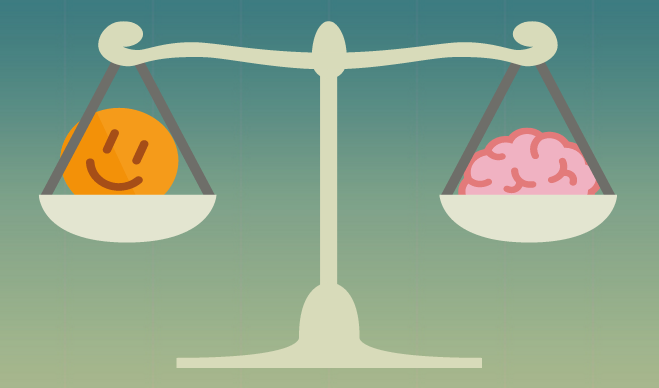AI Therapy: Balancing Mental Health With Privacy Concerns In A Potential Police State

Table of Contents
The Promise of AI Therapy
AI therapy platforms hold immense potential to revolutionize mental healthcare access and delivery. This is particularly crucial given the global shortage of mental health professionals.
Accessibility and Affordability
AI therapy platforms can democratize mental healthcare, making it more accessible to remote populations and individuals struggling with affordability.
- Reduced cost compared to traditional therapy: AI therapy often involves lower fees than in-person sessions, making it a more financially viable option for many.
- 24/7 availability: Unlike traditional therapy, AI-powered platforms are available anytime, anywhere, offering immediate support when needed.
- Personalized treatment plans: AI can adapt treatment strategies based on individual progress and needs, leading to more effective outcomes.
For example, apps like Woebot and Youper use conversational AI to provide Cognitive Behavioral Therapy (CBT) techniques, addressing barriers to traditional therapy access like cost and geographical limitations. These platforms offer immediate support and personalized plans, making mental healthcare more convenient and accessible.
Personalized Treatment
AI algorithms can analyze user data to tailor treatment plans to individual needs and preferences, leading to more effective outcomes than generic approaches.
- Adaptive treatments based on progress: AI constantly monitors progress and adjusts treatment strategies accordingly.
- Identification of specific triggers and patterns: AI can help identify negative thought patterns and triggers, enabling users to develop more effective coping mechanisms.
- Customized coping strategies: AI can provide personalized tools and techniques to manage stress, anxiety, and other mental health challenges.
By analyzing user input, including text, voice, and even physiological data (if integrated), AI algorithms can create highly personalized treatment plans. This adaptive approach allows for more efficient and targeted interventions, potentially accelerating recovery and improving overall outcomes compared to traditional, one-size-fits-all methods.
Privacy Concerns in a Potential Police State
While the benefits of AI therapy are significant, the potential for privacy violations in a surveillance state presents serious ethical and practical challenges.
Data Security and Breaches
AI therapy platforms collect sensitive personal data, creating vulnerabilities to hacking and unauthorized access.
- Risks of data breaches: Cyberattacks targeting AI therapy platforms could expose users' private thoughts, feelings, and personal information.
- Potential misuse of personal information: Stolen data could be used for identity theft, blackmail, or other malicious purposes.
- Lack of robust data encryption: Insufficient security measures could leave user data vulnerable to unauthorized access.
The types of data collected can range from conversational transcripts and mood logs to biometric data, if the app integrates with wearable devices. A breach could lead to devastating consequences, including reputational damage, emotional distress, and even financial loss. Robust encryption and security protocols are crucial to mitigate these risks.
Government Surveillance and Data Access
In a potential police state, authorities might demand access to users' therapy data, compromising confidentiality and chilling open communication.
- Potential for government surveillance: Governments could use AI therapy data for surveillance, monitoring citizens' mental states and identifying potential "dissidents."
- Forced data disclosure: Authorities might compel AI therapy providers to disclose user data without proper warrants or legal processes.
- Chilling effect on open communication with AI therapists: The fear of government surveillance could discourage users from openly discussing sensitive topics, hindering the effectiveness of therapy.
This scenario raises serious ethical questions about the right to privacy and the potential for compelled self-incrimination. Strong data protection laws and independent oversight are crucial to prevent government overreach and protect user confidentiality.
Algorithmic Bias and Discrimination
AI algorithms are trained on data that may reflect existing societal biases, potentially leading to unfair or discriminatory outcomes.
- Biases in AI algorithms: Algorithms can perpetuate existing biases related to race, gender, socioeconomic status, and other factors.
- Potential for perpetuation of harmful stereotypes: Biased algorithms might misinterpret user input or provide inappropriate treatment recommendations.
- Unequal access to quality care: Algorithmic bias could lead to unequal access to effective mental healthcare, exacerbating existing inequalities.
The data used to train AI algorithms must be carefully vetted to minimize bias. Regular audits and independent evaluations are necessary to ensure fairness and prevent discriminatory outcomes.
Balancing the Benefits and Risks
To harness the benefits of AI therapy while mitigating its risks, a multi-pronged approach is required.
The Need for Robust Regulations
Strict data privacy laws and ethical guidelines are crucial to mitigate risks associated with AI therapy.
- Data anonymization techniques: Techniques like differential privacy can protect user identities while preserving data utility for research and algorithm improvement.
- Transparent data handling practices: Clear and accessible data privacy policies are crucial to build user trust.
- Independent oversight bodies: Regulatory bodies are needed to monitor the ethical use of AI therapy platforms and enforce data protection regulations.
International cooperation on AI ethics is vital to establish global standards that protect user privacy and prevent the misuse of AI therapy data.
User Empowerment and Informed Consent
Users must be fully informed about data collection practices and have control over their data.
- Transparent data privacy policies: Easy-to-understand privacy policies should explain how user data is collected, used, and protected.
- Clear consent mechanisms: Users should have the ability to provide informed consent for data collection and use.
- User control over data sharing: Users should have the right to access, modify, or delete their data at any time.
Empowering users through transparency and control is vital to building trust and ensuring responsible data handling.
Technological Solutions for Privacy
Encryption, secure data storage, and differential privacy techniques can help protect user data.
- End-to-end encryption: This prevents unauthorized access to user data, even by the AI therapy provider.
- Federated learning: This allows AI models to be trained on decentralized data without compromising user privacy.
- Homomorphic encryption: This enables computation on encrypted data without decryption, preserving confidentiality.
These technological advancements are crucial for enhancing the security and privacy of AI therapy platforms.
Conclusion
AI therapy holds immense potential to revolutionize mental healthcare, but its integration must be carefully managed to prevent the erosion of privacy in a potential police state. We need robust regulations, transparent practices, and user empowerment to ensure that the benefits of AI-powered therapy are realized without compromising individual freedoms. The future of AI therapy hinges on finding a balance between innovation and responsible data handling. Let's work together to create a future where AI therapy enhances mental health without sacrificing our fundamental right to privacy. Actively participate in the discussion on ethical AI and advocate for responsible implementation of AI therapy.

Featured Posts
-
 Your Edge In Mlb Dfs May 8th Sleeper Picks And Hitter To Avoid
May 16, 2025
Your Edge In Mlb Dfs May 8th Sleeper Picks And Hitter To Avoid
May 16, 2025 -
 Resultado Belgica Portugal 0 1 Resumen Y Goles Destacados
May 16, 2025
Resultado Belgica Portugal 0 1 Resumen Y Goles Destacados
May 16, 2025 -
 Dodgers Hyeseong Kim Homer 2 Steals Power Okc Doubleheader Sweep
May 16, 2025
Dodgers Hyeseong Kim Homer 2 Steals Power Okc Doubleheader Sweep
May 16, 2025 -
 Analysis Ontarios Plan For Permanent Gas Tax Cuts And Highway 407 East Toll Removal
May 16, 2025
Analysis Ontarios Plan For Permanent Gas Tax Cuts And Highway 407 East Toll Removal
May 16, 2025 -
 Taiwan Financial Regulator Probes Allegations Of Etf Sales Pressure
May 16, 2025
Taiwan Financial Regulator Probes Allegations Of Etf Sales Pressure
May 16, 2025
Latest Posts
-
 Lafc Prioritizes Mls San Jose Game A Key Indicator
May 16, 2025
Lafc Prioritizes Mls San Jose Game A Key Indicator
May 16, 2025 -
 Shorthanded Timbers Fall To San Jose Ending Seven Match Unbeaten Run
May 16, 2025
Shorthanded Timbers Fall To San Jose Ending Seven Match Unbeaten Run
May 16, 2025 -
 San Jose Vs Lafc Mls Match Highlights Lafcs Shift In Priorities
May 16, 2025
San Jose Vs Lafc Mls Match Highlights Lafcs Shift In Priorities
May 16, 2025 -
 Portland Timbers Unbeaten Streak Ends At Seven Games Against San Jose
May 16, 2025
Portland Timbers Unbeaten Streak Ends At Seven Games Against San Jose
May 16, 2025 -
 Lafc Hosts San Jose A Crucial Mls Showdown
May 16, 2025
Lafc Hosts San Jose A Crucial Mls Showdown
May 16, 2025
